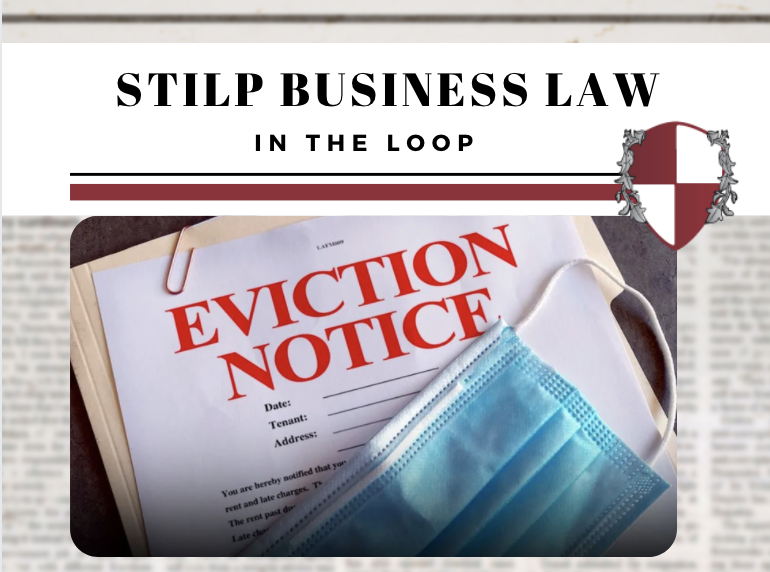Tom Stilp, JD, MBA/MM, LLM, MSC
Ms. Morey, 48, is dying of blood cancer. She lives with her teenage son. Ms. Morey has been diagnosed with a rare, incurable and unpredictable cancer. (This account is based on the article, J. Melchoir, “The Vulnerable Pay the Price for Covid Eviction Moratoriums,” The Wall Street Journal, p. A11, Aug. 14-15, 2021.) Ms. Morey undergoes chemotherapy and her sister has offered to move in to help care for her. $16,000 of back rent is owed.
Ms. Santucci says the two women are mortal enemies.
Refusing to apply for rental assistance, the Tenant says: “I’m not going to do you any favors in this situation. I’m not going to fill out paperwork to enable the landlady to get this ERAP (Emergency Rental Assistance Program).”
The person dying of cancer, Ms. Morey, is the landlord. Ms. Santucci is the tenant.
Ms. Santucci won’t leave, and won’t pay rent: “Go the distance with me, and see how that’s going to end up for you.”
Almost four decades ago, the U.S. Supreme Court required compensation to an apartment building owner from a cable T.V. company, for the taking of property “no bigger than a bread box.” Loretto v. Teleprompter Manhattan CATV Corp., 458 U.S. 419, 73 L. Ed 2d 868, 102 S.Ct. 3164 (1982). In Loretto, the Supreme Court held that even a minor, but permanent physical occupation of the apartment owner’s property for the benefit of a cable T.V. Co., though authorized by state law, constituted a “taking” of property for which just compensation was due from the cable company under the 5th and14th Amendments of the Constitution.
The Court’s analysis was simple. The Court recognized: “The power to exclude has traditionally been considered one of the most treasured strands in an owner’s bundle of property rights [and…] the permanent physical occupation of property forever denies the owner any power to control the use of the property… An owner is entitled to the absolute and undisturbed possession of every part of his premises.” 458 U.S. at 435-37, 102 S.Ct. at 3176-77.
In response to the cable company’s argument in Loretto that a few boxes, wires, bolts and screws constituted a de minimis intrusion, the Court said:
“[O]ur cases uniformly have found a taking to the extent of the occupation, without regard to whether the action achieves an important public benefit or has only minimal economic impact on the owner… Constitutional protections for the rights of private property cannot be made to depend on the size of the area permanently occupied … Whether the installation is a taking does not depend on whether the volume of space it occupies is bigger than a bread box.”
458 U.S. at 434-38, 102 S. Ct. at 3175-77. Without compensation, a property owner is not required to suffer any physical occupation of its property by third party, and even “the inconvenience to the landlord of initiating the repairs [to the property as a result of the cable equipment] remains a cognizable burden.” 458 U.S. at 440, 102 S. Ct. at 3180 (emph. added).
Following Loretto, would not the facts showing the Tenant has the entire property be even worse? Yes, according to well-established precedent.
The US Supreme Court stated: “[N]o matter how minute the intrusion, and no matter how weighty the public purpose behind it, we have required compensation” for a “property owner [who] suffers a physical ‘invasion’ of his property.” Lucas v. South Carolina, 505 US 1003, 1015, 112 S.Ct. 2886, 2893 (1996).
In Illinois, the Constitution requires that: “Every person shall find a certain remedy in the laws for all injuries and wrongs which he receives to his person, privacy, property or reputation. He shall obtain justice by law, freely, completely, and promptly.” Bill of Rights, Illinois Constitution, Section 12.
A paradigm shift has meant that decades of precedent have been overruled. As The Wall Street Journal quoted a witness, who asked: “’As for recovering their financial losses, there is no recourse.’ Is that how the CDC spells Covid relief?’”
We have represented hundreds of clients in Landlord-Tenant disputes. We received recognition from the Governor of the state of Illinois for work on Senate Bill 1934 amending Code of Civil Procedure, Forcible Entry and Detainer Act (the “Eviction Act”), 735 ILCS 5/9-107 and 5/9-107.5 to assist landlords and sheriff deputies in proper eviction process. This legislation was crucial to building owners throughout the state.
If you have a problem, we can help.



